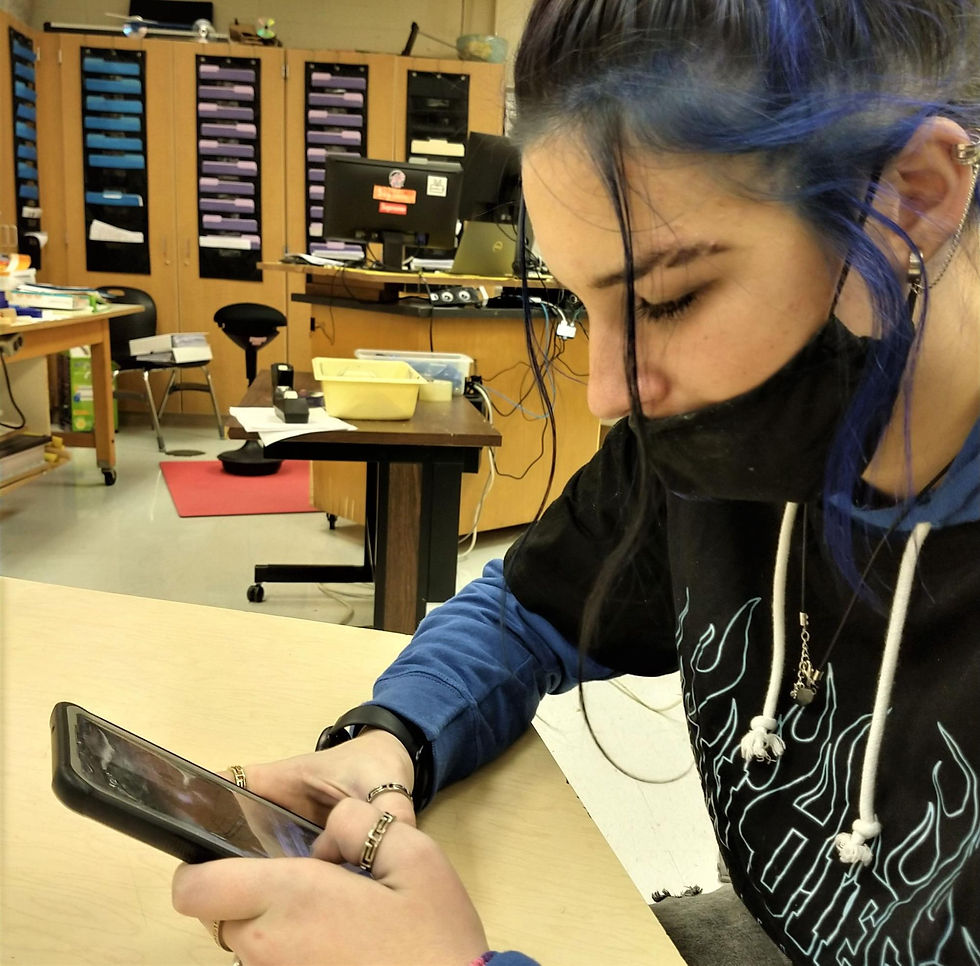Tips for healthy interactions with social media
- Matrixnewspaper
- Dec 10, 2021
- 2 min read
By: Taylor Orcutt
Since the rise of social media, parents have voiced their concerns about how their teenage students have used these social platforms.
Recent whistleblower Frances Haugen alleged that Instagram harms young teens' self-esteem and body image.
As of 2018, the American Academy of Child and Adolescent Psychiatry (AACAP) reported 90% of teens have used social media.
Some parents do not allow their children to access social media. Some parents do. However, social studies teacher Mark Chapman had a different opinion.
“I want them not to want it,” he said about his own teenage children. “However, if they use it [social media], I want them to have healthy interactions with it.”
Students also have similar opinions regarding social media.
Senior Olivia Kaiser voiced hers. “I wish I did not have social media, but I need Instagram for my small business account. I stay connected to my close friends through Snapchat.”
According to the Pew Research Center, 31% of teens reported social media is positive and 24% reported social media is negative.
The effects are felt by adults, too. Chapman spoke about social media and its influence on his behaviors and emotions.
“I would listen to a sad song, and then all that would be recommended to me were sad things! It’s hard to break that cycle.”
Beyond behavior and emotional threats, teens are particularly susceptible to cyberbullying. According to the Pew Research Center, 1 in 6 teens experience name calling, false rumors and physical threats.
It is up to the parents and students to determine if these dangers are worth the benefits social media can provide.
“It [social media] can positively impact connections to friends. We can use social media to find people who can relate to our issues, which can be comforting when you feel alone in your struggle,” said Kaiser.
It is important to weigh the effects of social media, so parents and students can form healthy social media habits.
For parents who allow, the National Alliance on Mental Illness (NAMI) offers suggestions on healthy social media habits.
NAMI suggests users avoid “unhealthy” or distressing accounts and support those who are distressed.
NAMI also suggests that users manage their time on social media. Reducing screen time and taking breaks from social media can improve overall health. The American Academy of Pediatrics suggests teenagers limit their use to 2 hours a day,
“I try to regulate my social media use. I also try to keep myself busy with other activities, so I am entertained and off my phone,” said Kaiser.

Photo Credit: Taylor Orcutt
Senior Ali North scrolls mindlessly on her phone during her free time.



Comments